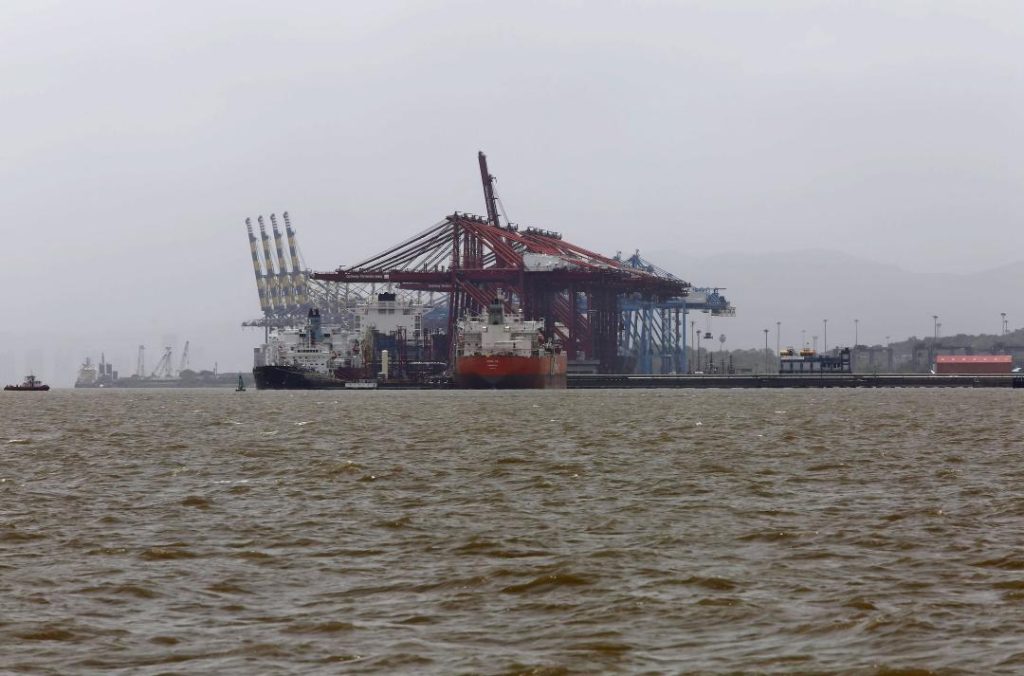
How was ₹800-cr scam undertaken by Tata firm & India’s largest container port’s ex-staff?
The ₹800-crore scam undertaken by the former staff of Tata Consulting Engineers and India’s largest container port, Jawaharlal Nehru Port, has sent shockwaves across the country. The scam, which has resulted in cumulative losses exceeding ₹4,200 crore, is a stark reminder of the need for tighter regulations and greater accountability in large-scale projects.
So, how was this massive scam undertaken? The scam, which involves the dredging project at the Jawaharlal Nehru Port, was undertaken by the former staff of Tata Consulting Engineers, a prominent firm in the engineering and consulting sector. The firm was hired by the Jawaharlal Nehru Port Trust (JNPT) to undertake the dredging project, which aimed to increase the port’s capacity and efficiency.
The scam was executed through a series of fraudulent activities, including the use of a deeper 15-metre vessel draft instead of the approved 14-metre draft. This caused a loss of ₹1,163 crore to the JNPT. The officials also opted for a single rate for dredging of different rock types, causing a loss of ₹557 crore. Furthermore, the contractors undertook dredging for excess width, causing a loss of ₹964 crore.
The scam was uncovered by the Central Bureau of Investigation (CBI), which launched an investigation into the matter after receiving a complaint from the JNPT. The CBI found that the former staff of Tata Consulting Engineers had manipulated the project’s tender documents and specifications to favour certain contractors and suppliers.
The CBI also found that the firm had colluded with certain contractors and suppliers to ensure that the project was awarded to them at inflated prices. The officials had also made false claims about the project’s progress and had concealed the actual losses incurred.
The scam has raised serious concerns about the lack of transparency and accountability in large-scale projects. It is clear that the officials involved in the scam had no qualms about manipulating the project’s tender documents and specifications to favour certain contractors and suppliers.
The scam has also highlighted the need for greater regulation and oversight in the engineering and consulting sector. It is clear that the sector needs more stringent regulations and greater accountability to prevent such scams from happening in the future.
The CBI has summoned several officials and contractors in connection with the scam. The agency has also seized several documents and records from the offices of Tata Consulting Engineers and the JNPT.
The scandal has also led to a change in the leadership of the JNPT. The Chairman of the JNPT, Tapan Prakash, has been removed from his post, and a new Chairman has been appointed to take charge of the port.
The scam has also led to a review of the project’s tender documents and specifications. The JNPT has announced that it will conduct a fresh tender for the project, and that it will ensure that the tender documents and specifications are transparent and unbiased.
The scam has also led to a loss of confidence in the engineering and consulting sector. The sector has been plagued by several scandals in recent years, and the scam has further eroded the public’s trust in the sector.
The CBI has also launched an investigation into the role of the officials who were involved in the scam. The agency has summoned several officials, including the former Managing Director of Tata Consulting Engineers, to appear before it.
The scam has also led to a call for greater transparency and accountability in the engineering and consulting sector. Several experts have called for greater regulation and oversight in the sector to prevent such scams from happening in the future.
In conclusion, the ₹800-crore scam undertaken by the former staff of Tata Consulting Engineers and India’s largest container port, Jawaharlal Nehru Port, is a stark reminder of the need for greater transparency and accountability in large-scale projects. The scam has raised serious concerns about the lack of regulation and oversight in the engineering and consulting sector, and has led to a call for greater regulation and oversight to prevent such scams from happening in the future.






